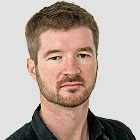He probably didn't see it coming. Last Tuesday night Baitullah Mehsud was hooked up to a drip in a remote farmhouse in Pakistan's tribal badlands, his second wife by his side, being treated by a trusted doctor for a long-standing kidney ailment.
Then a pair of Hellfire missiles slammed through the roof, fired from a CIA-operated drone hovering in the inky sky. The Taliban commander, his wife, brother and several bodyguards perished, Rehman Malik, Pakistan's interior minister, said today.
Death by drone may be silent, but news of Mehsud's demise was loudly hailed as a signal victory for Pakistan in its rocky struggle against violent extremism. A border warrior turned high priest of suicide bombers, Mehsud was more notorious in Pakistan than Osama bin Laden and as feared as the Iraqi insurgent Abu Musab al Zarqawi, who was killed two years ago.
"It is quite a setback for the Taliban movement," said Brigadier Mehmood Shah, a former chief of security for the tribal areas.
His death also marked a stunning strike for America's hi-tech, low-risk war in Pakistan's tribal belt. Lifting off from a secluded base in western Pakistan, the drones are guided by pilots sitting in a US Air Force HQ in the Nevada desert, thousands of miles away.
But while it may resemble a computer game to the pilots, the latest attack had a tremulous impact far beyond the strike site.
As reports of Mehsud's eradication filtered out, a gunfight between Mehsud loyalists and a rival faction erupted in the nearby town of Tank, leaving at least 14 people dead. In the capital, Islamabad, police chiefs boosted security, fearing a retaliatory strike from the legion of suicide bombers that made Mehsud's reputation.
And somewhere in deepest Waziristan, a meeting of Mehsud's top deputies got underway to decide who will succeed him as the head of Tehrik I Taliban Pakistan (TTP), Pakistan's most powerful militant outfit.
Speculation that Mehsud was dead started building last night when White House officials briefed reporters of "strong indications" that the Taliban leader had been killed. By lunchtime today qualified official confirmations started to emerge.
"He has been taken out," said foreign minister Shah Mehmood Qureshi, cautioning that "100 per cent confirmation" was not possible until a forensics team reached the site.
But a senior Mehsud aide, Kafayat Ullah, confirmed that Mehsud and his wife had died, offering no further details. Pakistani television channels, quoting intelligence sources, said he had already been buried in Narkosai, a small village near the strike site.
For the first time, Pakistanis saw the man who had come to haunt them, as stations aired images of Mehsud's face they had previously suppressed following Taliban threats.
In Washington, White House spokesman Robert Gibbs refused to confirm the killing but noted a "growing consensus among credible observers that he is indeed dead".
It was the culmination of a long pursuit by American and Pakistani forces. Nine of the last 10 US drone strikes in Pakistan's tribal belt targeted Mehsud's network. In March the US put a $5m bounty on his head; Pakistan offered another $650,000. The noose was tightened by the Pakistani army, which mobilised troops and tanks to the borders of Mehsud's mountain stronghold over the past six weeks in preparation for a possible assault.
The strike ended a career that was as short as it was brutal. Mehsud, 39, rose to prominence in 2005 after signing a controversial peace deal with the Pakistani army. Just over two years later he declared himself the emir, or commander, of the TTP, eventually attracting the loyalty of about 14 militant groups across the tribal belt.
Mehsud went on to become public enemy number one, revolting and frightening Pakistanis with a relentless wave of suicide bombings that killed hundreds of soldiers, police, intelligence officials and civilians. But he denied CIA accusations of responsibility for the most notorious blast - the December 2007 assassination of the former prime minister Benazir Bhutto. A UN panel is investigating the killing.
According to estimates, Mehsud had up to 20,000 fighters under his control. His power was bolstered by support from senior al-Qaida figures - Arab fugitives as well as hundreds of ethnic Uzbek fighters - whom he sheltered in South Waziristan.
Now the Taliban is dominated by two rival commanders - Qari Gul Bahadur in North Waziristan and Maulvi Nazir in South Waziristan - who have adopted a lower public profile by focusing on cross-border raids into Afghanistan, where elections take place in less than two weeks.







